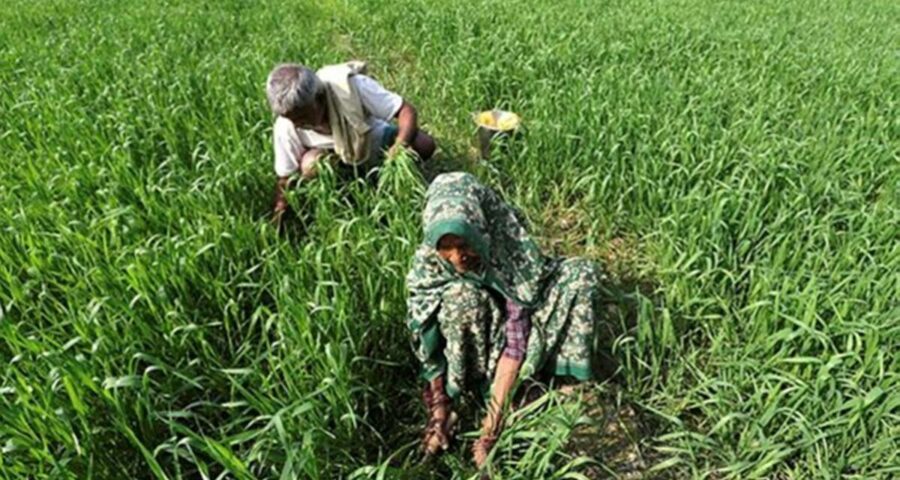🔴 Experts underline that there should be a rapid flow of latest information about farming to the farmers by organising short-, medium- and long-term training programmes at village and block level on a regular basis.
The big question is: “How can farmers’ income from limited landholdings be enhanced when the input costs are ever-increasing?”
Dr Balwinder Singh, former chief agriculture officer (CAO), department of agriculture, says, “There are several components, including providing fair price to the crop of farmers but one of the most crucial elements, which can contribute a lot to enhance the farmers’ income, is practising the modern scientific farming, which curtails input cost, increases productivity from small landholdings, saves water and environment. And it is possible only when every farmer is aware of the scientific techniques of the farming.”
Agriculture extension services have a big role to play here, he says.
“There is still a huge gap between agriculture research and the farmers. It needs to be bridged as soon as possible,” says Dr Singh, adding that there is no use of doing big or small researches in agronomic practices unless they do not reach the target users-farmers.
Experts believe with this extension programme only, “we can impart knowledge about everything related to agriculture, including teaching the marketing trends”.
Unless the farmer is not aware of the importance of soil testing, water saving methods in irrigation, enhancing the organic matter in his field, he will keep on spending on non-required fertilisers, extracting huge amount of groundwater and coming under financial burden of getting his tubewell more and more deep, and burning the stubble instead of incorporating it in his field to enhance organic matter, respectively, says Dr Singh.
An expert from Punjab Agriculture University (PAU), Ludhiana, says that when a farmer is doing scientific farming, he is saving 20% to 25% input cost and enhancing his income by increasing his yield.
“I have been incorporating stubble in my fields for the past seven-eight years. After three-four years of this practice, my crop yield increased by two-three quintals per acre and fertiliser consumption went down by 25% because stubble incorporation has increased the organic matter in my fields,” says farmer Gurjit Singh of Allahdita village in Kapurthala district.
How can the gap between research and farmers be bridged?
The agriculture department officials say that the first and foremost need is to have an adequate number of staff as all the vacant posts in the department must be filled with immediate effect. Also, the government should increase the number of field staff as per the current number of farmers in the state.
A senior IPS officer posted in Punjab, a farmer himself, maintains that the government is regularly recruiting cops at various levels and the total strength of Punjab Police is around 70,000, whereas the job of the police is to control crime, “but our focus should be on prevention of crime for which the people need to gainfully employed, be it service or self-employment in fields like agriculture”.
“In Punjab where a large number of people are dependent on agriculture, we should strive to make agriculture a more gainful employment for which the income level of the farmers should increase,” he says, adding that if “we had recruited even 2,000 people in the agriculture department, its strength would have tripled with just this recruitment and one can imagine extent of improvement in the agriculture extension services thereby improving farmers’ income too.
He adds that if anybody has done good in extension services, it is Western Uttar Pradesh (UP) and Haryana to some extent.
Asserting that interaction between farmers and scientists is a must, experts underline that there should be a rapid flow of latest information about farming to the farmers by organising short-, medium- and long-term training programmes at village and block level on a regular basis.
A regular training of the agriculture officers from top to bottom is a must because a trained staff can train the farmer well. This will also keep the department officials up to date with the knowledge which they could disseminate further, says former Deputy Director Agriculture Madan Lal Khurana.
Farmer unions and govt relation
Experts feel that farmer unions have a big influence on the mindset and the corresponding behaviour of its constituent farmers. When they could motivate and sustain for well over a year the massive protest against the three farm laws at Delhi borders, one can imagine their inherent strength. And the governments rather than being on the warpath with them, the government must help improve cooperation and liaison between farmers and the government with the help of these unions so that the farmers may reap benefits by adopting the prevalent, modern, agricultural practices and paving the way for doing away with a rampant stubble burning, huge exploitation of water, which is ultimately harming the farmers’ interest from an economic point of view too.
Source: Read Full Article


